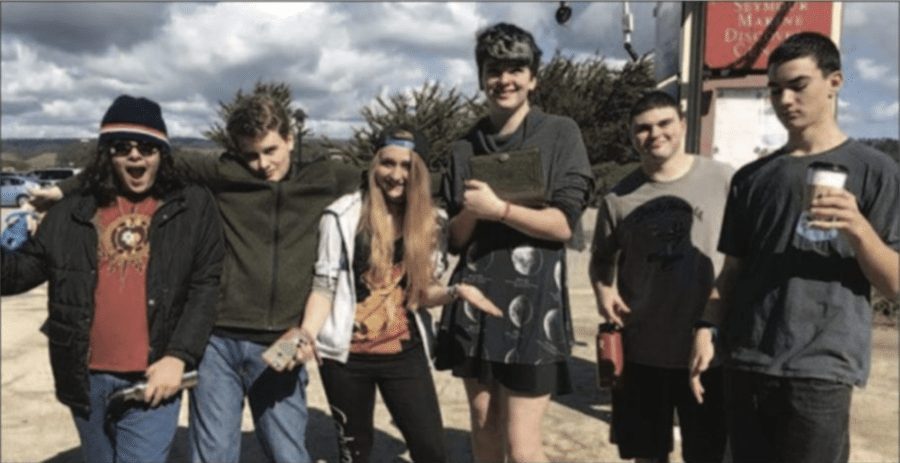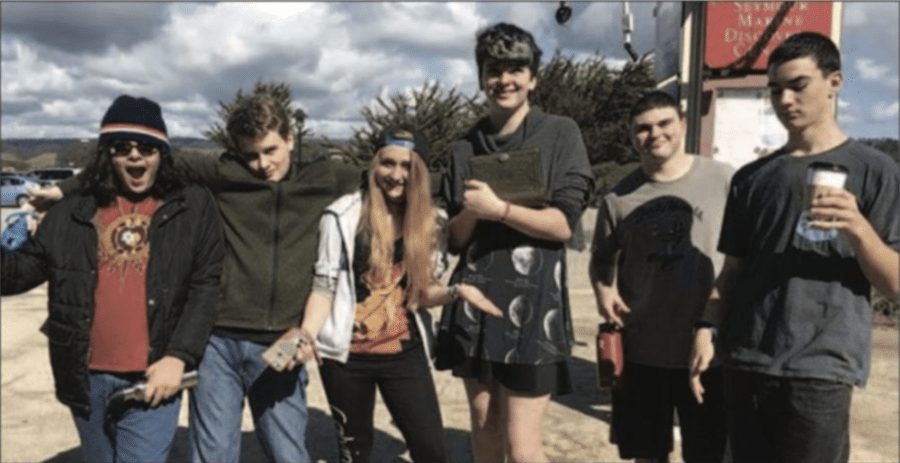The Little School that Could Explore
MCP Serves Students who Have Nowhere Else to Go
By Suki Wessling

It’s a well-kept secret: We have a school system that serves most students quite well.
We have mainstream public schools that serve students with typical needs, as well as offering support for low-achieving students with special needs.
We have a network of alternative public schools that serve students in certain demographics or families with specific academic interests.
We have private schools for families looking for smaller, posher, or specific types of educational opportunities.
Despite the spectrum of choices, however, some students are still left looking for the right school. For a variety of reasons, some of them end up at explore MCP, a tiny private school in Scotts Valley.
An Unusual Focus
MCP’s website announces that it is “specifically designed to address students’ individual learning differences,” which may seem a bit vague. That’s because MCP isn’t your typical school for students with special needs. As a school that serves students with special learning needs who perform at or above grade level, MCP helps an at-risk population that other schools haven’t yet learned to integrate.
One of the common ways that students find their way into the special education system in our public schools is through low test scores. But plenty of students with average, high, and top test scores have special needs that go unaddressed.
For example, students at the higher end of the iQ spectrum have been shown to have a higher than expected incidence of a number complicating factors, including high functioning autism, dyslexia, obsessive compulsive disorder, gender dysphoria, and other learning, social, and emotional differences. Also, some special learning environment needs accompany students of any academic achievement level. A typical school will see high test scores and equate those scores with “success” in educating the student.
Success is Different for Different Students
However, the statistics show otherwise. High iQ students are more likely than typical students to drop out of high school. Students with gender dysphoria show much higher rates of suicidal ideation. High-achieving students with dyslexia often go undiagnosed because of what psychologists call “stealth dyslexia”—being able to cover the handicap of dyslexia through other coping mechanisms. And in a large school, students who don’t make waves are often assumed to be doing “just fine.”
MCP’s staff is trained to work with students to address all these considerations and more. MCP’s small size means that all the students have individualized educational plans. But because of the population they are serving, MCP students are also expected to meet grade level expectations and beyond. All MCP students are required to complete dual enrollment courses at Cabrillo during their high school years.
The Lone Tiny Fish in a Great Big Sea
Schools like MCP are anomalies. They aren’t public, though public school districts pay to have some of their students attend in order to get appropriate education. They don’t have the strong donor base that established private schools develop, since almost all families come to them out of necessity, not by choice. There is very little grant funding available for operating expenses at nonprofit schools.
MCP functions like a small fish adrift without its school in a large, overwhelming sea. It depends primarily on full enrollment in order to keep the doors open. Parents work hard to keep it afloat because their students often have nowhere else to go. The staff is underpaid and overworked, yet fully committed to their mission.
MCP’s staff is trained to work with students to address all these considerations and more. MCP’s small size means that all the students have individualized educational plans. But because of the population they are serving, MCP students are also expected to meet grade level expectations and beyond. All MCP students are required to complete dual enrollment courses at Cabrillo during their high school years.
Joy for Students Who Might Have None
But MCP, amidst its struggles, is a joyful place. Staff exudes excitement and pride at being able to serve the needs of its specialized population. Parents use words like “our last hope” and “transformative” to describe how they found the school and why they stay.
And students graduate from MCP full of pride for who they are. At graduation, each student gives a speech, as do their primary family members, about their high school experience. MCP staff gifts each student with a book hand-chosen for the student. and students know that their MCP diploma is more than a piece of paper—it’s a certificate of the optimism and support they get from the staff.
What MCP Needs
Our community can support explore MCP most of all by referring needy students to its program. This includes students experiencing lack of a social fit; students with stealth dyslexia or other unusual learning needs; students experiencing gender dysphoria; college-bound students with high- functioning autism; students suffering from mental health challenges; students with physical disabilities; and more.
Our businesses can support this program by offering monetary and in-kind donations for MCP’s programs and fundraising efforts.
Our professionals who serve students with special needs can refer families and offer their support for MCP’s program.
Although small, MCP is a vital part of our community. All children deserve the education they need in order to thrive, even when their needs are so unusual that only the least usual school of all can serve them.





